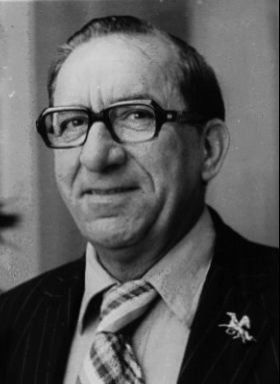Dom Mintoff Dies: The ?King? Of Malta, A Super-Catholic State More Arab Than European

Dom Mintoff is a name virtually unknown outside of Malta, but he has reigned like a colossus on the tiny Mediterranean isle, which lies between Europe and North Africa.
Mintoff, who passed away at the age of 96, served as prime minister of Malta four times between 1955 and 1984 and also led the left-of-center Labour Party for more than three decades.
A fiery orator who repeatedly clashed with Malta’s powerful Catholic Church, Mintoff endorsed Maltese independence from Britain (after abandoning a plan to integrate with the UK).
Independence was granted on 1964. By 1974, Malta became a republic after severing ties with the UK, leading to the departure of British naval forces on the island in 1979 (after a two-century stay).
During his tumultuous tenure in power, Mintoff further alienated London by cultivating strong ties with Communist China and also with Moammar Gaddafi of nearby Libya, who sold him oil at very cheap prices.
At one point, Mintoff said Malta was part of the “Arab world” – a stark symbolic separation from its long British identity.
Domestically, Mintoff greatly expanded the welfare state in Malta by introducing a draft of social benefits, including state pensions.
Due to its strategic position, just 60 miles south of Sicily and 180 miles north of Tunisia, Malta has been trampled upon by foreign powers for centuries, initially by Phoenicians, Greeks, Romans, Arabs, Normans, Aragonese, Spaniards and in the modern era, the French and British.
With a population of just a little over 400,000, Malta is the smallest member of the European Union (which it joined in 2004) and the euro zone (2008).
In recent years, Malta has seen large waves of refugees and illegal immigrants from North Africa. The country has been condemned by Europe and the UN for its strict policy of detaining asylum-seekers and then deporting them.
Malta is an overwhelmingly Catholic country – part of Mintoff’s clash with the church was over its domination of the education system, which he sought to curb.
Nonetheless, 98 percent of Maltese are Roman Catholic – Pope John Paul II visited the island in 2001, followed by a trip by Pope Benedict XVI in 2009. Legend has it that St. Paul shipwrecked on Malta almost 2,000 years ago.
Like its nearby neighbor, Sicily, Malta defies easy categorizations.
For example, the national language, Maltese, is derived from Siculo-Arabic, a variation of Arabic spoken in the region in the early Middle Ages. While this tongue eventually vanished in Sicily, it survived in Malta, where later invasions by European powers further enriched the language.
Moreover, while Malta is much closer to Tunis and Tripoli than Rome or Paris, Catholicism dominates the island’s affairs.
There are also laws on the books that can send a person to prison for six months for vilifying the island’s “Roman Catholic Apostolic Religion.”
Malta’s very constitution declares that Roman Catholic is the state religion. Indeed, divorce was not legalized there until 2011, while abortion remains unlawful.
© Copyright IBTimes 2024. All rights reserved.





















